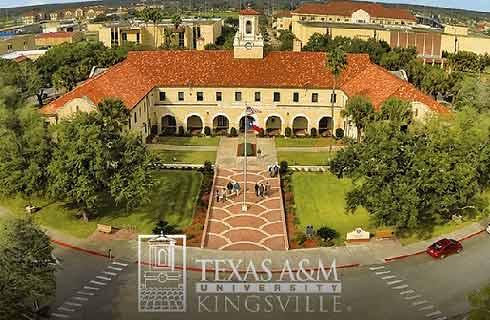地理信息学理学硕士
Master of Science in Geoinformatics

学历文凭
Masters Degree

专业院系
Department of Earth and Planetary Sciences

开学时间

课程时长

课程学费

国际学生入学条件
Required Degree - Bachelor's Degree from an accredited college or university in the United States or have proof of equivalent training at a foreign institution.
Minimum GPA - 3.0 (on a 4.0 scale) Departments may consider GPA of last 60 semester credit hours
Coursework - 18 credit hours in an area related to this graduate degree and at least 12 hours must be at the upper-division level.
Transcripts - Required from all institutions attended, international transcripts must be recorded/translated to English
Credential Evaluation - Required if you have earned university-level credit from foreign institutions. Submit an evaluation of your transcripts from Educational Credential Evaluators (ECE) directly from the graduate admission application platform
English Language Proficiency - 550 TOEFL Paper / 79 TOEFL Internet / 6.5 IELTS
Purpose Statement - Required
Letters of Recommendation - 2 academic or professional reference(s) demonstrating your attributes for successful completion of this program (you will request these through the Graduate Admissions Application, let your recommenders know of your deadline to ensure submissions are on time)
Minimum GPA - 3.0 (on a 4.0 scale) Departments may consider GPA of last 60 semester credit hours
Coursework - 18 credit hours in an area related to this graduate degree and at least 12 hours must be at the upper-division level.
Transcripts - Required from all institutions attended, international transcripts must be recorded/translated to English
Credential Evaluation - Required if you have earned university-level credit from foreign institutions. Submit an evaluation of your transcripts from Educational Credential Evaluators (ECE) directly from the graduate admission application platform
English Language Proficiency - 550 TOEFL Paper / 79 TOEFL Internet / 6.5 IELTS
Purpose Statement - Required
Letters of Recommendation - 2 academic or professional reference(s) demonstrating your attributes for successful completion of this program (you will request these through the Graduate Admissions Application, let your recommenders know of your deadline to ensure submissions are on time)
IDP—雅思考试联合主办方

雅思考试总分
6.5
- 雅思总分:6.5
- 托福网考总分:79
- 托福笔试总分:550
- 其他语言考试:Duolingo - 100
CRICOS代码:
申请截止日期: 请与IDP联系 以获取详细信息。
课程简介
地理信息学理学硕士(MS)学位课程为高级学习和研究提供了机会,旨在使学生为在行业,政府,研究和/或学术机构中的领导作用做好准备。该计划的教育目标是培养能够应用地理空间科学和技术解决行业或学术界问题并在所选就业领域中发挥领导作用的毕业生。这是由地质科学系管理的多学科计划。它包括理学院,人文与美术学院,工程学院,公共政策学院,建筑,建筑与规划学院的教职员工和资源,以及其他学术部门的教职员工。地理信息学理学硕士学位要求至少成功完成32个学期的学分
The Master's in Geoinformatics prepares graduates who are capable of applying geospatial science and technology to solve problems in industry or academia, as well as assuming leadership roles in their chosen employment field. The cross-disciplinary nature of this program utilizes spatial data (geographic and/or remote sensing data) to solve real-life problems related to locations and changes in space and time, with wide applications in oil and gas industry, water resources and management, land use and land cover, climate change and cryosphere, archaeology, political science, urban planning and transportation, demography, public health, disaster response and relief effort, geospatial intelligence, and cyber-security.<br>Big data and cloud computing are the two new aspects of the program's collaborative research and applications, since geospatial and remote sensing data are big in nature and need advanced technology and methods for data mining, processing, storing, sharing, and distribution.
The Master's in Geoinformatics prepares graduates who are capable of applying geospatial science and technology to solve problems in industry or academia, as well as assuming leadership roles in their chosen employment field. The cross-disciplinary nature of this program utilizes spatial data (geographic and/or remote sensing data) to solve real-life problems related to locations and changes in space and time, with wide applications in oil and gas industry, water resources and management, land use and land cover, climate change and cryosphere, archaeology, political science, urban planning and transportation, demography, public health, disaster response and relief effort, geospatial intelligence, and cyber-security.<br>Big data and cloud computing are the two new aspects of the program's collaborative research and applications, since geospatial and remote sensing data are big in nature and need advanced technology and methods for data mining, processing, storing, sharing, and distribution.
相关申请
 预科
预科 奖学金
奖学金 实习机会
实习机会 在校学习
在校学习 跨境学习
跨境学习 校园授课-线上开始
校园授课-线上开始 在线/远程学习
在线/远程学习
开学时间&学费
学费信息仅供参考,请与IDP联系以获取详细信息
| 开学时间 | 时长 | 学费 | 地点 |
|---|
学校排名

世界排名501
数据源:
泰晤士高等教育世界大学排名
本校相关课程
其他相关课程

地理空间情报研究生证书
 乔治梅森大学
乔治梅森大学泰晤士高等教育世界大学排名:426
学历文凭
Graduate Certificate
开学日期
课程费用总额


土木工程学硕士-地理和地理信息系统
 科罗拉多大学丹佛分校
科罗拉多大学丹佛分校学历文凭
Masters Degree
开学日期
课程费用总额


地理科学学士-地理信息系统
 阿克伦大学
阿克伦大学学历文凭
Bachelor Degree
开学日期
课程费用总额


Graduate Certificate in Geospatial Intelligence
 乔治梅森大学-INTO USA
乔治梅森大学-INTO USA学历文凭
Graduate Certificate
开学日期
课程费用总额


Bachelor of Science in Geographic Information Science and Master of Science in GIScience and Geoenvironment
 西伊利诺伊大学
西伊利诺伊大学学历文凭
Combined Baccalaureate and Master's Prog
开学日期
课程费用总额


Bachelor of Science in Geospatial Information Sciences
 德克萨斯大学达拉斯分校
德克萨斯大学达拉斯分校学历文凭
Bachelor Degree
开学日期
课程费用总额
















